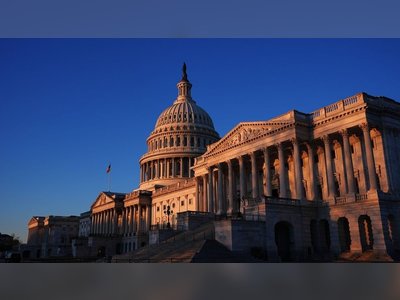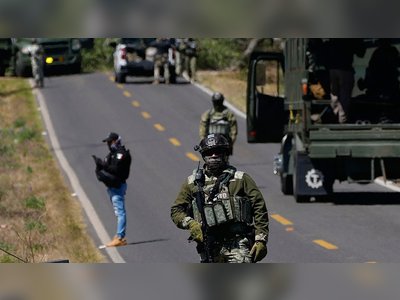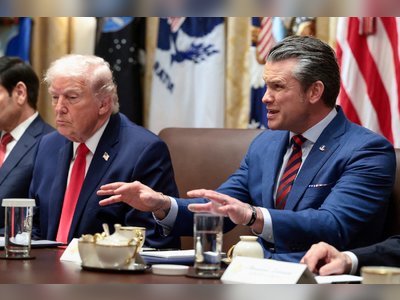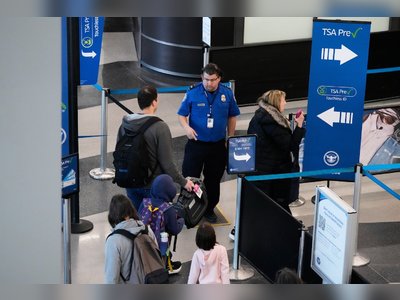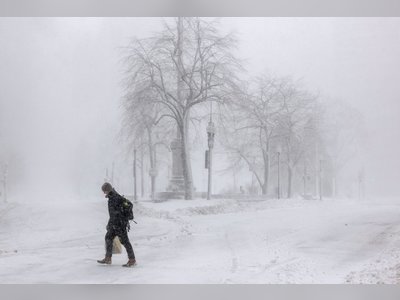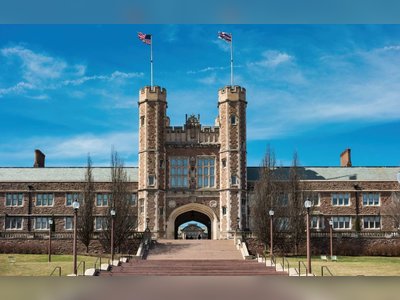
Zelenskyy Accuses Putin of Deception Following Recent Drone Strikes
Ukrainian President claims Russian attacks intensified despite alleged ceasefire agreement during Trump-Putin talks.
Ukrainian President Volodymyr Zelenskyy has accused Russian President Vladimir Putin of lying following a series of drone strikes in Ukraine that occurred shortly after an agreement was reported during a phone call between Putin and U.S. President Donald Trump.
Zelenskyy stated that infrastructure attacks, including strikes on two hospitals in Sumy, defied claims that a halt to such strikes had been agreed upon.
In remarks to the media, Zelenskyy emphasized the discrepancy between Putin's assurances during his call with Trump and the reality on the ground.
He noted that around 150 drones targeted energy infrastructure and transport in Ukraine shortly after the call took place.
Zelenskyy asserted, "Putin's words were very different from reality," indicating a lack of trust in the Russian leadership’s commitments.
The bombardment follows comments from the Russian Foreign Ministry, which accused Ukraine of instigating attacks.
Assertions were made that Russian forces had successfully intercepted 57 Ukrainian drones overnight, and reports emerged of damage to an oil facility in the Krasnodar region of Russia.
The Ukrainian public railway operator, Ukrzaliznytsia, reported significant damage from a drone attack that disrupted power systems in the east of Ukraine.
They questioned the nature of the ceasefire agreement purportedly outlined in talks with Trump.
This was compounded by further damage to energy facilities in the Dnipro region during ongoing military operations.
Zelenskyy also articulated firm red lines for any potential peace negotiations, including a refusal to accept any territorial losses in regions that Russia has annexed or claims.
He demanded the release of additional prisoners, alongside guarantees against future conflict resumption.
He further stated that Ukraine would enhance NATO’s capabilities if allowed to join the alliance, emphasizing opposition to Russian antagonism toward NATO expansion.
Germany’s defense minister, Boris Pistorius, criticized the ongoing assaults on civilian infrastructure so soon after the purported ceasefire agreement as indicative of a lack of genuine commitment from Russia to halt hostilities.
British Minister Stephen Timms echoed these sentiments, highlighting the need for a comprehensive ceasefire and labeling the recent developments as "not encouraging."
Insights from the Kremlin characterized discussions with Trump as a frank exchange regarding the violence in Ukraine.
A statement from Russian officials noted key demands, including a complete cessation of U.S. military aid to Ukraine and conditions tied to the proposed truce.
These included the need for effective oversight of any ceasefire and addressing fears regarding Ukraine's military actions which Russia has described as provocations.
Negotiations aimed at achieving a lasting peace began with an agreed-upon 30-day pause on attacks targeting energy facilities in Ukraine.
The White House stated this pause represents the first step toward a broader truce, while expressions of potential cooperation in different geopolitical domains were noted.
Ceasefire talks are ongoing, with expectations that dialogue will resume imminently.
However, Zelenskyy has raised concerns about being excluded from discussions that have direct implications for Ukraine’s sovereignty and security interests.
Zelenskyy stated that infrastructure attacks, including strikes on two hospitals in Sumy, defied claims that a halt to such strikes had been agreed upon.
In remarks to the media, Zelenskyy emphasized the discrepancy between Putin's assurances during his call with Trump and the reality on the ground.
He noted that around 150 drones targeted energy infrastructure and transport in Ukraine shortly after the call took place.
Zelenskyy asserted, "Putin's words were very different from reality," indicating a lack of trust in the Russian leadership’s commitments.
The bombardment follows comments from the Russian Foreign Ministry, which accused Ukraine of instigating attacks.
Assertions were made that Russian forces had successfully intercepted 57 Ukrainian drones overnight, and reports emerged of damage to an oil facility in the Krasnodar region of Russia.
The Ukrainian public railway operator, Ukrzaliznytsia, reported significant damage from a drone attack that disrupted power systems in the east of Ukraine.
They questioned the nature of the ceasefire agreement purportedly outlined in talks with Trump.
This was compounded by further damage to energy facilities in the Dnipro region during ongoing military operations.
Zelenskyy also articulated firm red lines for any potential peace negotiations, including a refusal to accept any territorial losses in regions that Russia has annexed or claims.
He demanded the release of additional prisoners, alongside guarantees against future conflict resumption.
He further stated that Ukraine would enhance NATO’s capabilities if allowed to join the alliance, emphasizing opposition to Russian antagonism toward NATO expansion.
Germany’s defense minister, Boris Pistorius, criticized the ongoing assaults on civilian infrastructure so soon after the purported ceasefire agreement as indicative of a lack of genuine commitment from Russia to halt hostilities.
British Minister Stephen Timms echoed these sentiments, highlighting the need for a comprehensive ceasefire and labeling the recent developments as "not encouraging."
Insights from the Kremlin characterized discussions with Trump as a frank exchange regarding the violence in Ukraine.
A statement from Russian officials noted key demands, including a complete cessation of U.S. military aid to Ukraine and conditions tied to the proposed truce.
These included the need for effective oversight of any ceasefire and addressing fears regarding Ukraine's military actions which Russia has described as provocations.
Negotiations aimed at achieving a lasting peace began with an agreed-upon 30-day pause on attacks targeting energy facilities in Ukraine.
The White House stated this pause represents the first step toward a broader truce, while expressions of potential cooperation in different geopolitical domains were noted.
Ceasefire talks are ongoing, with expectations that dialogue will resume imminently.
However, Zelenskyy has raised concerns about being excluded from discussions that have direct implications for Ukraine’s sovereignty and security interests.




